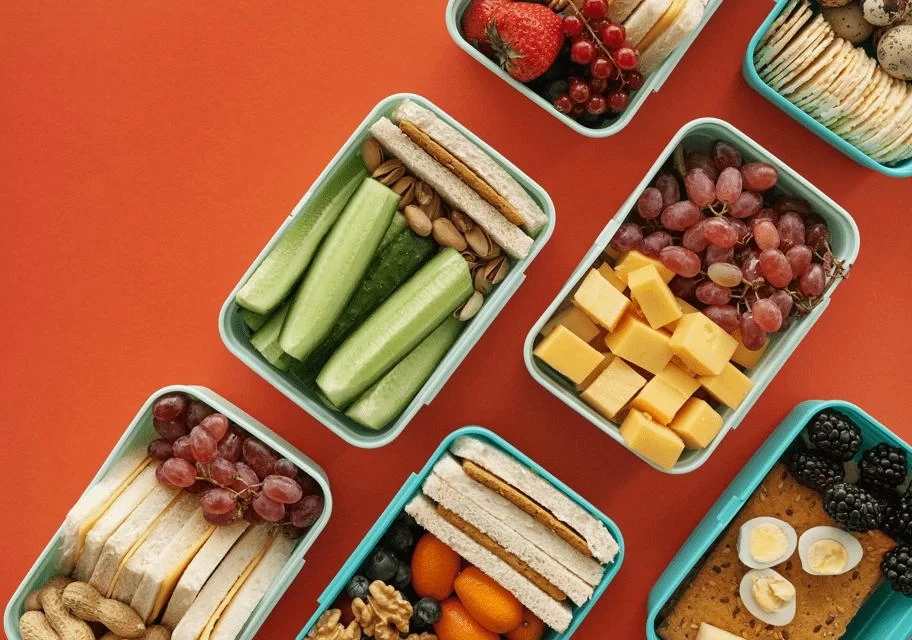
Best Foods for Children's Dental Health
As parents, one of the most important aspects of a child's well-being is maintaining their dental health. The foundation of good oral hygiene starts with healthy eating habits, and what children eat can directly impact the health of their teeth. This guide explores the best foods to include in your child's diet to promote strong, healthy teeth and prevent common dental issues like cavities and gum disease.
The Link Between Diet and Dental Health
Dental health isn't just about brushing and flossing. While these habits are critical, the food your child eats plays a major role in the overall health of their teeth. Certain foods can strengthen teeth, prevent tooth decay, and reduce the risk of cavities. On the other hand, sugary and acidic foods can lead to tooth damage and promote the growth of harmful bacteria in the mouth.
Tooth-Friendly Foods for Healthy Teeth
Including a variety of tooth-friendly foods in your child's diet is essential for their overall dental health. These foods are packed with vitamins, minerals, and nutrients that are beneficial for the development and maintenance of strong teeth. Here are some of the best foods to incorporate into your child's meals:
1. Dairy Products: The Power of Calcium
Dairy products like milk, cheese, and yogurt are packed with calcium, which is essential for strengthening teeth and bones. Calcium helps to remineralize the enamel, the protective outer layer of the teeth, and makes teeth more resistant to cavities. Additionally, cheese can help neutralize acids in the mouth and stimulate saliva production, which helps to wash away food particles and bacteria.
2. Fruits and Vegetables: A Natural Source of Nutrients
Fruits and vegetables are full of vitamins and minerals that support good oral health. Crunchy fruits and vegetables, such as apples, carrots, and celery, act as natural toothbrushes by helping to clean teeth and stimulate gums. They also help promote saliva flow, which naturally cleanses the mouth. Fruits like strawberries, kiwis, and oranges are high in vitamin C, which is important for healthy gums and tissues in the mouth.
3. Nuts and Seeds: A Healthy Snack for Teeth
Nuts and seeds are excellent sources of healthy fats, protein, and minerals such as magnesium and phosphorus. These minerals are essential for the health of both teeth and bones. Almonds, cashews, and sunflower seeds can help strengthen teeth by providing the body with important nutrients that support tooth enamel. Plus, they are naturally low in sugar, making them a great choice for a tooth-friendly snack.
4. Water: The Ultimate Hydrator for Healthy Teeth
Water is arguably one of the most important elements for maintaining good dental health. Drinking water throughout the day helps to wash away food particles and bacteria that can contribute to plaque buildup. It also helps to keep the mouth hydrated, preventing dry mouth—a condition that can lead to an increased risk of tooth decay and gum disease. Opting for fluoridated water is especially beneficial, as fluoride helps to remineralize tooth enamel and protect against cavities.
5. Green Tea: A Sip for Healthy Teeth
Green tea is a surprising but effective beverage when it comes to maintaining good oral health. It contains natural compounds called polyphenols that can help fight harmful bacteria in the mouth and reduce the risk of gum disease and cavities. Drinking green tea can also help reduce bad breath and promote overall oral hygiene. However, it's best to avoid adding sugar to your tea to ensure it remains tooth-friendly.
The Worst Foods for Your Child's Teeth
While some foods are beneficial for children's dental health, others can cause long-term damage. Sugary and sticky foods, as well as acidic beverages, should be limited to promote optimal dental hygiene. Foods like candies, chips, and soda can lead to plaque buildup, cavities, and gum disease. Here's a quick rundown of foods to avoid:
1. Sugary Snacks and Drinks
Foods and drinks that are high in sugar, such as candies, soda, and sugary cereals, can cause cavities by feeding harmful bacteria in the mouth. These bacteria produce acids that attack tooth enamel, leading to decay over time. If your child enjoys sweet treats, it's important to encourage them to brush their teeth afterward and limit the frequency of sugary snacks.
2. Sticky and Chewy Foods
Foods like caramel, gummy bears, and dried fruit can get stuck to teeth, making them more difficult to remove. These sticky foods can also contribute to plaque buildup and cavities, especially if they stay on the teeth for extended periods of time. It's best to opt for healthier alternatives when it comes to snacks and desserts.
3. Acidic Beverages
While fruit juices and soda may seem like refreshing drinks, their high acidity can erode tooth enamel over time. Acidic drinks like orange juice, lemonade, and soda can weaken the enamel and increase the risk of cavities. If your child drinks these beverages, it's a good idea to have them drink water afterward to rinse away any remaining acid.
Fun and Creative Ways to Encourage Healthy Eating
As parents, it can sometimes be a challenge to get kids to eat healthy foods. But there are plenty of fun and creative ways to make tooth-friendly foods more appealing. Here are some tips:
1. Make It Fun with Food Art
Get creative with how you present fruits, vegetables, and other tooth-friendly foods. You can make fun shapes with fruits like apples or use vegetables like carrots to create designs on their plates. Kids love when their food is visually appealing, and this can help make healthy eating more exciting!
2. Offer a Variety of Tooth-Friendly Snacks
Keep a variety of tooth-friendly snacks on hand, such as cheese sticks, apple slices with peanut butter, or homemade trail mix with nuts and seeds. Having healthy snacks readily available makes it easier for kids to make better choices throughout the day.
3. Lead by Example
Children are more likely to eat healthy foods if they see their parents and caregivers doing the same. Be sure to set a positive example by eating tooth-friendly foods yourself. When your child sees you enjoying healthy snacks and meals, they are more likely to follow suit.
Incorporating Healthy Foods into Your Child’s Routine
Incorporating these tooth-friendly foods into your child's daily routine doesn’t have to be difficult. Start by making small changes, such as swapping sugary snacks for healthier options and encouraging your child to drink water throughout the day. With consistency and a bit of creativity, your child can develop lifelong habits that promote good dental health.







 Hall Orthodontics5.0 (150 review)
Hall Orthodontics5.0 (150 review) Dentists of South Pasadena4.0 (124 review)
Dentists of South Pasadena4.0 (124 review) Topline Family Dental4.0 (259 review)
Topline Family Dental4.0 (259 review) Springfield Kids Dental5.0 (184 review)
Springfield Kids Dental5.0 (184 review) LA Dental Clinic4.0 (262 review)
LA Dental Clinic4.0 (262 review) Precision Oral Surgery and Implants4.0 (127 review)
Precision Oral Surgery and Implants4.0 (127 review) The Importance of Oral Health Education During Pregnancy for a Healthy Pregnancy
The Importance of Oral Health Education During Pregnancy for a Healthy Pregnancy Best Tips for Brushing Your Teeth Properly for Healthy Gums: Essential Techniques for Oral Health
Best Tips for Brushing Your Teeth Properly for Healthy Gums: Essential Techniques for Oral Health Why Skipping Dental Checkups Can Lead to Bigger Oral Health Problems
Why Skipping Dental Checkups Can Lead to Bigger Oral Health Problems Advantages of Porcelain Dental Restorations
Advantages of Porcelain Dental Restorations How Can Diabetes Cause Tooth and Gum Problems? Preventing and Managing Oral Health Issues
How Can Diabetes Cause Tooth and Gum Problems? Preventing and Managing Oral Health Issues Healthy Habits for Promoting Good Oral Health and Hygiene: Tips for a Healthy Smile
Healthy Habits for Promoting Good Oral Health and Hygiene: Tips for a Healthy Smile